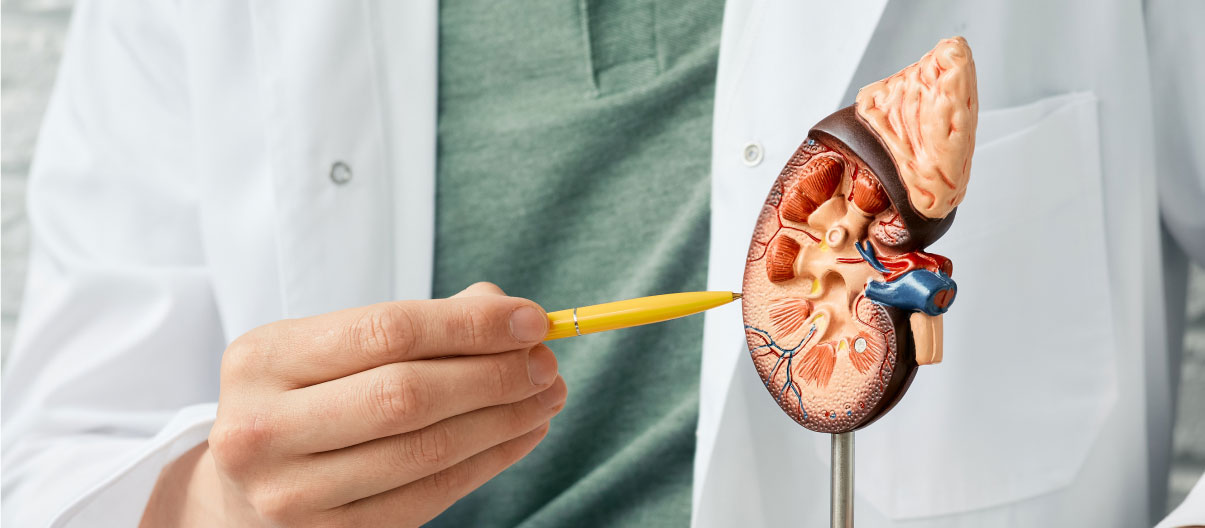Sort By

Education
What Your Kidneys Do
The kidneys are two bean-shaped organs located in the back of the abdominal cavity. Their primary role is to filter waste products and excess water from the blood, which are then excreted as urine. In addition to regulating fluid and electrolyte balance, the kidneys also play a crucial role in regulating blood pressure, producing hormones that stimulate the production of red blood cells, and maintaining the acid-base balance of the body. When the kidneys are not functioning properly, waste products can build up in the body, leading to a variety of health problems.

Education
Urea
Urea is a waste product of the digestion of proteins and is the primary component of the color and odor of urine. The kidneys help to filter toxic urea out and concentrate it in the urine. If the kidneys can no longer filter the urine of urea then dialysis is needed to detoxify the body.

Precautions
Creatinine
Creatinine is a waste product of the renewal of skeletal muscle. When tiny filters (glomeruli) in kidneys are damaged, creatinine does not get filtered out of the body into the urine. As your kidney function decreases it causes a build up of creatinine in the blood.


